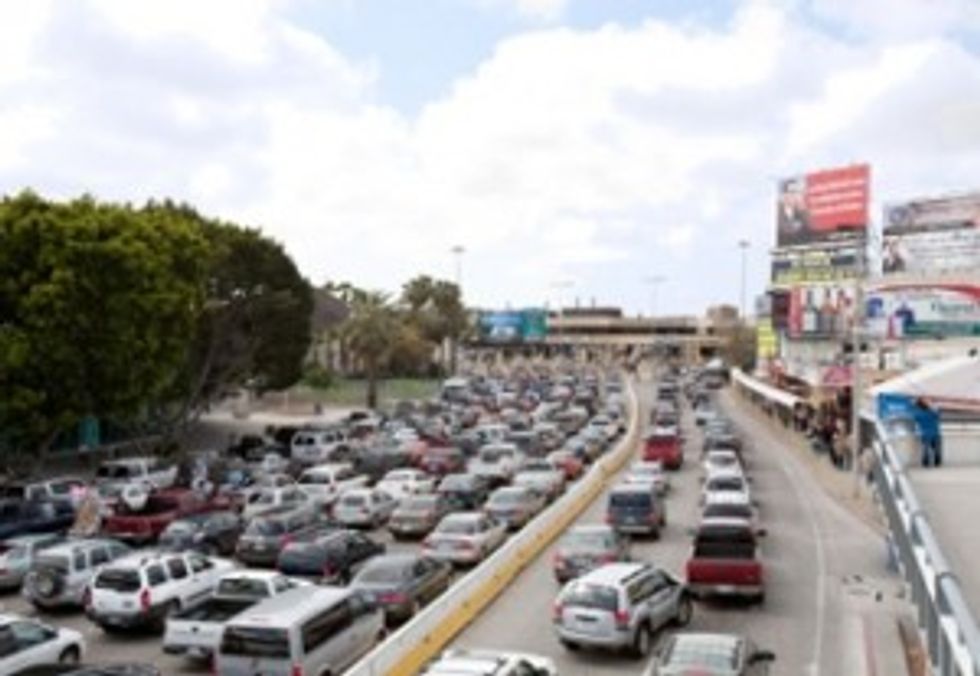
Cross-Border Regulations Require Advanced Planning
In 2010, over 790,000 shipments crossed over the Canadian and Mexican borders into the United States, and those numbers are on the rise. According to the latest Department of Transportation (DOT) figures, surface transportation trade among the U.S., Canada and Mexico reached $80.8 billion in March, the latest month for which figures are available. That is 15.6 percent higher than for the same period in 2010 and marks the highest month since collection of data began in 1994.
Cross border shipments create additional paperwork and planning for carriers, and new government regulations may exacerbate the need to plan ahead.
In the U.S., the government is preparing to enforce a federal regulation that requires motor carriers and exporters to stipulate on electronic manifests the amount of residual product left inside trailers and tankers after making deliveries in Canada and Mexico. That means even a small amount of chemicals in a tanker truck or wood chips in the bottom of a dump truck would require an electronic manifest or trailers would have to be washed prior to entering the U.S.
Jenny Burke, a spokeswoman for Customs and Border Patrol (CBP), said an enforcement date has not yet been set. CBP has said all technical issues should be resolved in early 2012, and the agency anticipates establishing an enforcement date once the information technology issues for all modes—rail, truck and air—are resolved. CBP has said the trade community will be notified well in advance of the enforcement date once it is established.
In Canada, the Canadian Border Services Agency (CBSA) is working to automate crossings with the Advance Commercial Information (ACI) eManifest program for motor carriers. The program requires the electronic transmission of advance cargo and conveyance information from carriers and is expected to speed border crossings. The program is voluntary until 2012.
Under ACI, carriers submit their information to the CBSA electronically, then they receive a conveyance reference number and barcode that they present at the border. CBSA plans to use transponder technology in the future and would like to eventually correspond it with the transponder technology used in the U.S.
While some regulations look at the goods that move across the border, a new regulation will affect the pallets that carry those goods back and forth. In late 2010, the U.S. Department of Agriculture’s Animal and Plant Inspection Service proposed removing an exemption that allows wood packaging material to ship between the United States and Canada without meeting requirements established by the International Plant Protection Convention (IPPC).
Under the IPPC, pallets must be heat treated— getting the core temperature of the pallets up to 133 degrees Fahrenheit for 30 minutes—or be fumigated with methyl bromide—to kill invasive species of forest insects. USDA has not issued a final implementation date. Pallets shipped internationally are already required to be treated every time they cross the U.S. border, unless shippers can prove no new wood was added since the last treatment.
Penske Logistics has been managing cross-border shipments and international transportation on behalf of its supply chain customers for more than 30 years.
“While there are many challenges and regulations to consider in cross-border operations we have the experience, processes and certifications to help our customers navigate through them easily,” explained Penske Logistics strategic account executive Michael Carmody.
"Our customers recognize the logistical advantages Mexico’s manufacturing base offers to supply the U.S. market and are willing to work through the additional security and procedural costs with us to ensure uninterrupted flow of their finished goods,” he continued. “We help them ensure regulatory compliance every step of the way and easily facilitate customs clearance.”
Expansíon magazine in Mexico recently recognized Penske among its 500 most-important businesses operating within that country and has done so for two consecutive years.
Helpful Links
CBSA’s eManifest program: cbsa-asfc.gc.ca/prog/manif/menu-eng.html
To learn more about electronic manifests for residual material, visit cbp.gov/xp/cgov/trade/trade_outreach/advance_info/
To learn more about wood packaging requirements for pallets, visit aphis.usda.gov/.
By “Move Ahead” Staff